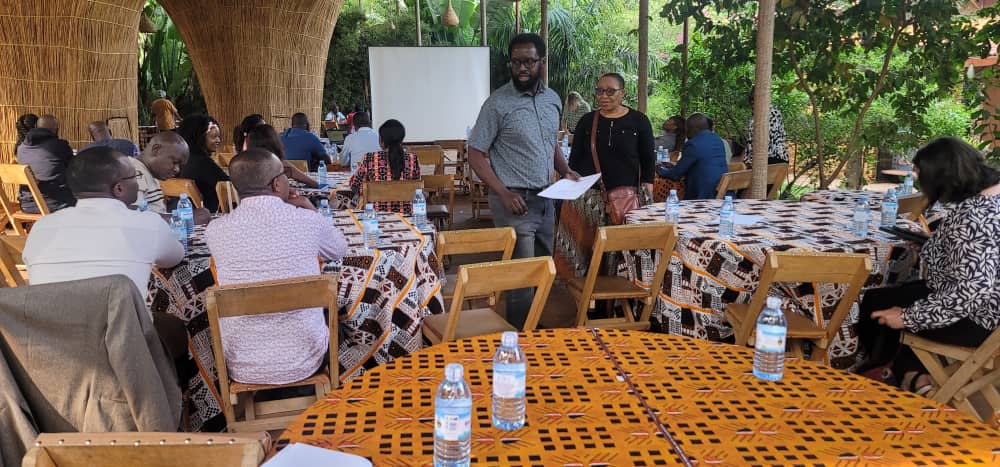The Team from Bukedi Rural and Urban Community Initiatives (BRUCI) attended a Conversation on Reimagining Aid and the role of INGOs in Uganda, an event that was organized by The Global Fund for Community Foundations and the Uganda National NGO on Friday, 16th August at Ndere Cultural Center, Ntinda-Kisaasi Road, Kampala,
The international aid system is preoccupied with “quick solutions” despite existing knowledge that change takes time. It centers money as the main driver of change while dismissing non-financial assets such as social capital, local networks, local knowledge, and their contribution to local development. This context has also created artificial divides between communities, civil society, and international funders, and has fueled an aid system that does not work but is defined by power.
The recent Too Southern To Be Funded report revealed that despite rhetoric committing to support Southern leadership and civil society from OECD DAC members, a significant portion of aid remains unofficially “tied”, disproportionately benefiting CSOs within DAC member countries, while marginalizing civil society in the South. Additionally, by restricting these funds to Northern CSOs only, the current funding practices are complicit in a system that undermines access to rights in regions experiencing a shrinking civic space in the Global South.
The meeting on 16th August was an opportunity to discuss how best to forge and maintain the pathways of practice and influence between and among people who are, in one way or another, crafting and testing new people-centered practices and approaches that are driven from the bottom-up, or who are leading experiments and authentic efforts to shift power from within the existing system.
The meeting brought together a cross-section of civil society actors, including local community foundations and other community philanthropy organizations, funders, and commentators to:
- Reflect on the current context in Uganda, where domestic philanthropy and the localization agenda of external donors and INGOs offer potential new pathways through which power in international aid and philanthropy can happen.
- Consider concrete pathways and lines of action (practices, commitments, advocacy, etc.) that will advance the reimagining development agenda and the vision of a good society in Uganda and East Africa more broadly.
- Reflect on how the locally led development can be executed in Uganda.
Why BRUCI attended?
The meeting on 16th August was for anyone interested in shaping the future of aid and redefining the role of INGOs in Uganda into a system that values all forms of capital (financial and non-financial), building bridges with other civil society and international NGO actors interested in reimagining aid and exploring new ways of deciding and doing.

